SERIES REVIEW – Did you think Game of Thrones was the zenith of television storytelling? Prepare yourself for another whirlwind of emotions that catapults you into the depths of the universe. This is precisely what David Benioff and D.B. Weiss set out to achieve, returning to the spotlight with their adaptation of Liu Cixin’s “3 Body Problem” for Netflix. Both fans of the genre and critics alike eagerly anticipated how this cornerstone of Chinese science fiction would be reborn on screen, especially under the stewardship of creators who have both demonstrated a fearless approach to grand narratives and faced criticism for their controversial final season of Game of Thrones.
Upon the announcement that the Game of Thrones creators were turning Liu Cixin’s revolutionary sci-fi masterpiece The Three-Body Problem into a Netflix series following the divisive finale of the HBO hit, TV enthusiasts and genre aficionados were understandably wary. Like Game of Thrones, Liu’s work presented a vastness and complexity seemingly unsuited for the small screen. Driven by theoretical physics, massive time leaps, vanishing protagonists, and technological marvels, the trilogy also delves deeply into Chinese literature, predominantly featuring male Chinese characters and enriched with footnotes explaining cultural nuances that might elude even the most diligent Western reader. How could this possibly translate to Netflix? Surprisingly well, it turns out, with the help of co-showrunner Alexander Woo.
A New Hit Series from the Game of Thrones Creators?
While Netflix’s 3 Body Problem series impresses with its riveting storytelling and thought-provoking alterations, it doesn’t quite reach the lofty heights of shows like Foundation on Apple TV+ or The Farkas Children, sadly canceled by Max. The series’ shortcomings only highlight what an extraordinary era we’re living in for sci-fi television; yet, when it truly shines, it unequivocally proves that Benioff and Weiss’s fame from Game of Thrones was no fluke. They are indeed cunning masterminds of serial storytelling.
The series kicks off with a harrowing event in 1966 Beijing. A young woman, Ye Wenjie (Zine Tsang), watches in horror as her father, a professor, is condemned in a public trial led by fervent communist revolutionaries. Directed by a barely adolescent girl filled with manic zeal, the scene becomes chillingly memorable when Wenjie’s father is killed for refusing to denounce Western science. This moment eerily mirrors one of the most unforgettable scenes in Game of Thrones, where Arya Stark (Maisie Williams) witnesses the tragic fate of her father, Ned Stark (Sean Bean). And just like Arya, Ye Wenjie embarks on a silent, determined path of vengeance.
The Case of the Suicidal Scientists
Before we discover what becomes of Ye Wenjie, we’re introduced to the initial consequences of her actions. In 2024, Detective Da Shi (Benedict Wong) investigates a series of mysterious deaths. Brilliant scientists around the globe are suddenly ending their own lives, all seemingly connected to a cryptic “countdown.” Following another perplexing death, Da Shi and his enigmatic boss, Wade (Liam Cunningham), start tracking a protégé of one of the victims. Known affectionately as the “Oxford Five,” this group was bound in their university days before diverging onto different paths in life. Now, one of them, Auggie Salazar (Eiza González), sees a mysterious countdown clock everywhere she looks.
Adding to this enigma is an advanced AI-based “game” passed on to another member of the Oxford Five, Jin Cheng (Jess Hong), by her deceased mentor’s mother (Rosalind Chao). Upon wearing the virtual reality headset, you’re thrust into a hyper-realistic world that feels all too genuine. As Jin and her college friend, Jack Rooney (John Bradley), become obsessed with the game, it becomes clear that this game, the countdown, and whatever Ye Wenjie did in the past are intricately connected…
Were the Changes Necessary?
Readers of the 3 Body Problem series will immediately notice the most audacious change in Benioff, Weiss, and Woo’s adaptation: the introduction of the Oxford Five. The original book unfolds through the perspective of Wang Miao, a middle-aged Chinese scientist with diminishing involvement and, frankly, a lack of personality as the story progresses. While purists may balk at replacing his role with five young, attractive actors of diverse ethnic backgrounds, who are fully fleshed out and deeply invested in each other’s lives, there’s an inherent logic to this choice. It injects a dose of drama into Liu’s otherwise cold, theoretical narrative, particularly when discussions of sophons and multiple dimensions could overwhelm. (David S. Goyer’s adaptation of Isaac Asimov’s equally austere Foundation also takes liberties with character development for thrilling effect.) Importantly, those who have read the entire trilogy can see how Liu’s characters neatly map onto all five, especially Jin, the most direct one-to-one match. Through the Oxford Five, these disparate characters interact early on and, crucially, mean something to each other — and to the audience.
One of the most impressive aspects of the 3 Body Problem is the wise ways in which the showrunners have adapted Liu’s saga for the small screen. Every episode of the first season is bursting with energy. The series eschews the trend of adapting one book per season, diving eagerly into parts of Book 2, The Dark Forest, and setting up Book 3, Death’s End, before the finale’s credits even roll. The show’s quieter scenes provide more context for the characters or serve to soothe the audience before a major shock. And yes, the men who gave us Ned Stark’s death, the Red Wedding, and the explosion of the Sept of Baelor still have some great twists in store.
The Real Problem with 3 Body Problem
Unfortunately, the 3 Body Problem falls short in depicting cosmic wonders. While the effects in the perplexing game are successful, scenes set in the real world are shot in a manner that feels flat and cheap. There are moments when the set design is so nondescript and the lighting so uninspiring, one might wonder if the directors were intentionally evoking a stale old network procedural. This approach cheapens an otherwise ambitious story. Although the 3 Body Problem doesn’t quite hit the high notes that elevate a good show to prestige, it remains a damn good series. Benedict Wong is perfect as Da Shi, a seemingly weary investigator with a heart of gold. Zine Tseng is revelatory as the young, tormented Ye Wenjie. And by the season’s end, I fully expect Alex Sharp’s character, Will Downing, to have amassed a significant online fanbase.
-Gergely Herpai (BadSector)-
3 Body Problem
Direction - 7.2
Actors - 7.8
Story - 7.5
Visuals/Music/Sounds - 6.2
Ambience - 6.8
7.1
GOOD
The Netflix adaptation of the 3 Body Problem is a daring venture to translate Liu Cixin’s complex and profound universe onto the television screen. Following the success of Game of Thrones, David Benioff and D.B. Weiss showcase their adaptational prowess with a series that both honors the original work and leads viewers into new territories. The introduction of the Oxford Five, the interweaving dynamics among characters, and the bold expansion of the story all contribute to making 3 Body Problem an engaging and thought-provoking series that strives to captivate attention from the first episode to the climactic moments of the finale — and largely succeeds in doing so.

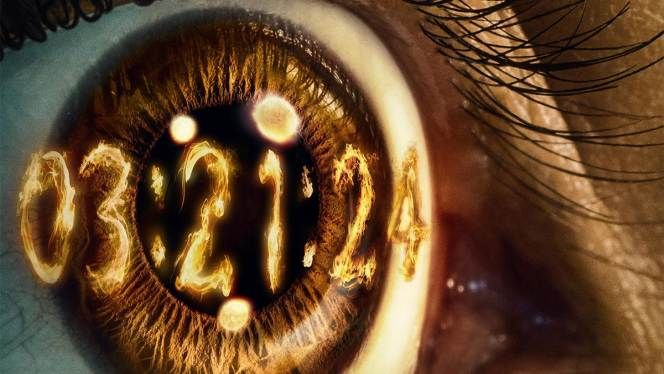
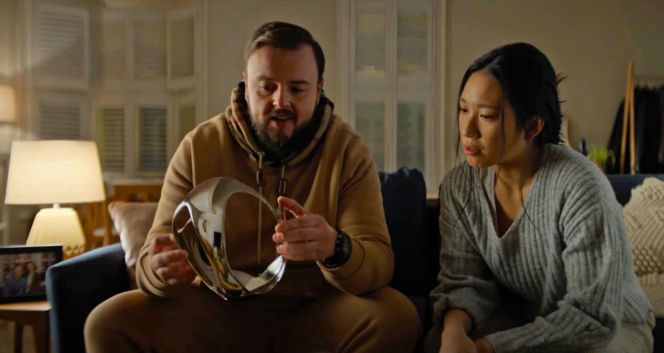
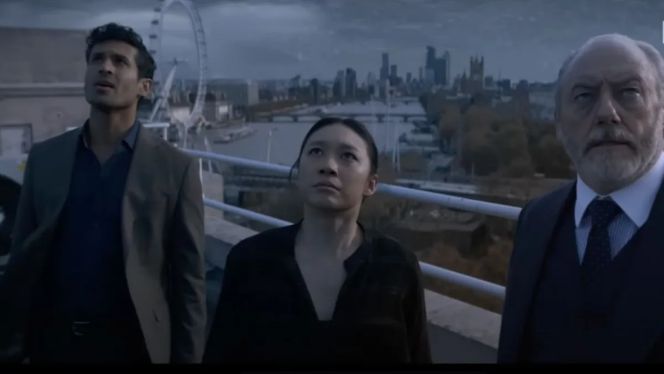
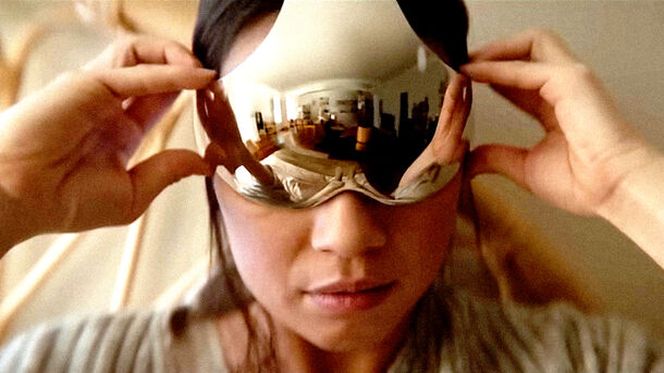





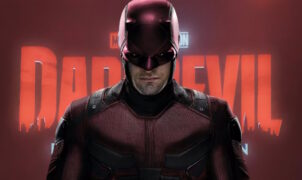








Leave a Reply